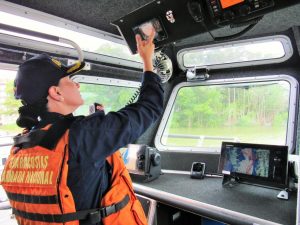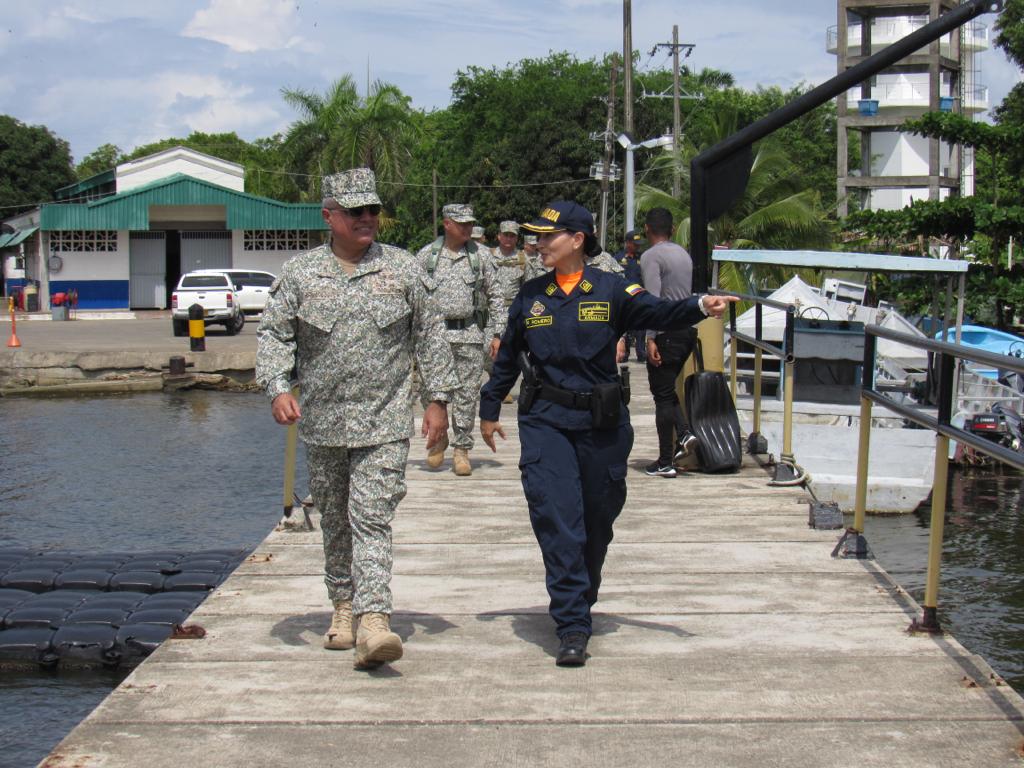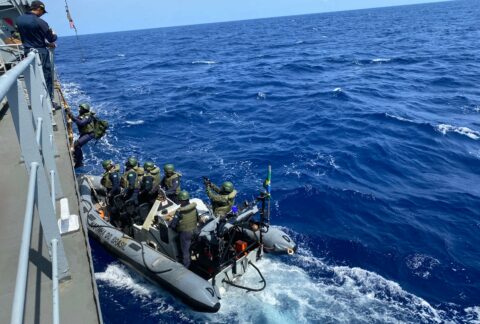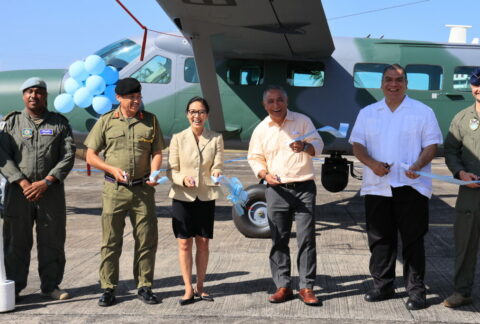The Colombian Navy has 15 Coast Guard stations tasked to counter crime at sea, monitor environmental protection, and contribute to search and rescue operations to ensure maritime security throughout the territory. For the first time in the history of the Colombian naval institution, a woman is leading one of these stations: Lieutenant Commander Raquel Elena Romero Quintero.

With 66 men and 11 women under her command, Lt. Cmdr. Romero leads the operations of the Urabá Coast Guard Station, which covers Colombia’s northeastern region near the Panamanian border, a corridor known for the trafficking of drugs, migrants, fauna and flora species, and contraband.
“This situation [Urabá as a crime corridor] makes Urabá’s Coast Guard Station highly operational,” said the officer, 39, who took over as commander in January 2019. “My area of operations covers 5,965 miles at sea and 267 miles of coastline, where I am responsible for defending the constitution and sovereignty, preserving life at sea, exercising control throughout the jurisdiction, and countering all illicit activities at sea.”
In her first year as commander of a Coast Guard Station, Lt. Cmdr. Romero led various operations resulting in the seizure of 6 tons of cocaine, and the capture of 17 criminals and seven vessels involved in narcotrafficking, among other accomplishments. Her unit also rescued 37 people in distress, as well as 99 illegal migrants.
“She is a woman who achieves her goals, regardless of the difficulties she might face in her job and operations,” said Captain Jorge Enrique Herrera, commander of the Colombian Navy’s Coast Guard. “It isn’t easy for men to follow commands given by a woman in an operational post, but she has broken these paradigms, and they have great respect for her.”
As a child, the officer wanted to be a teacher, and she had the chance to fulfill this dream when she worked as dean of the Naval Science School at the Admiral Padilla Naval Academy of Cadets, and as an instructor at the Colombian Air Force’s Marco Fidel Suárez Military Aviation School. Her other roles included head of the Logistics Department on the ship ARC Cartagena de Indias and chief of operations for the ship ARC Providencia.
The officer’s current role is not her first milestone: Lt. Cmdr. Romero was part of the first graduating class of women in the Executive Corps, consisting of people trained to command and lead naval operations, roles previously reserved for men.
“[In the year 2000] when we entered the institution, they told us we might be able to become commanders, sail, and command ships,” said Lt. Cmdr. Romero. “At that moment, we began to see things from a different perspective, and many of us decided that we wanted to become commanders. I remember it as if it were yesterday. I thought, ‘I want to be a commander; I want to make a contribution to my country.’”









